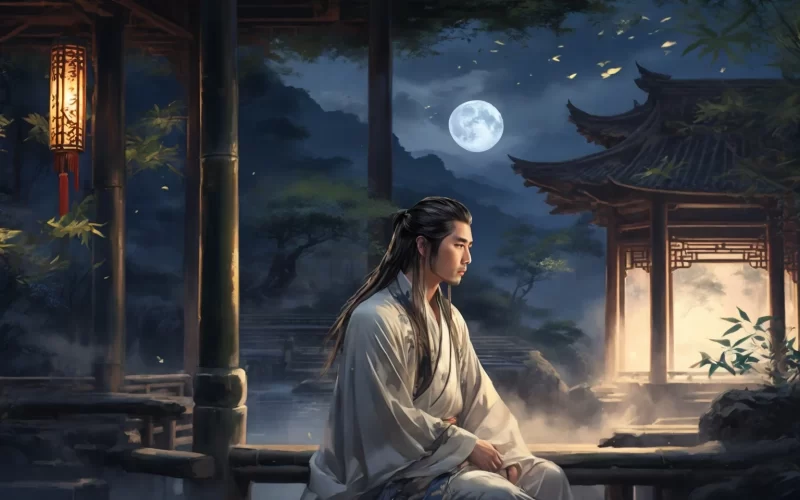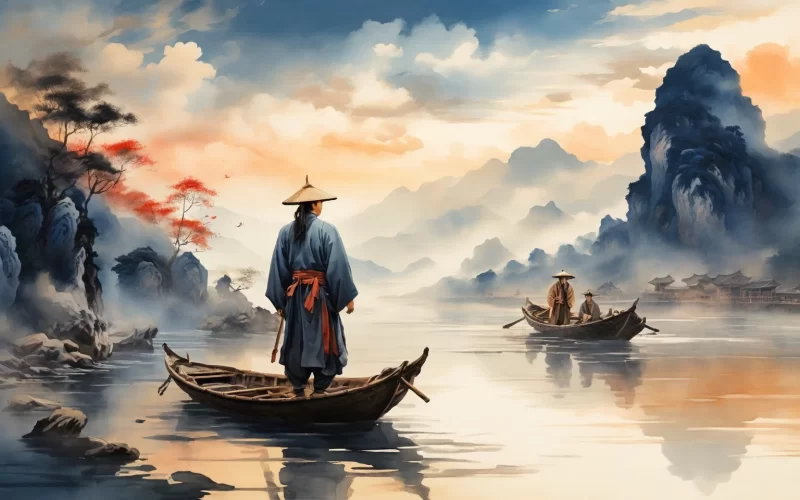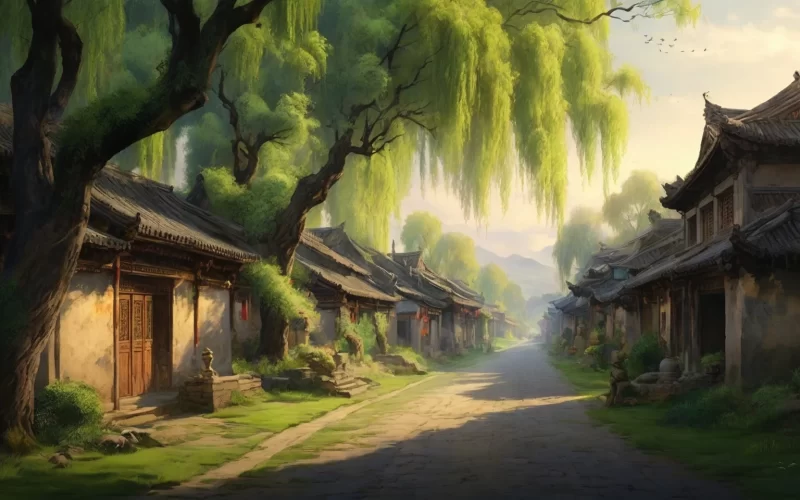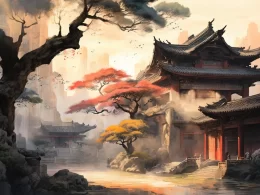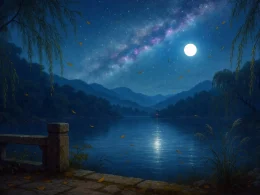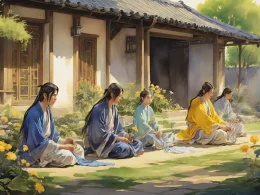Leaning alone in the close bamboos,
I am playing my lute and humming a song
Too softly for anyone to hear --
Except my comrade, the bright moon.
Original Poem
「竹里馆」
王维
独坐幽篁里,弹琴复长啸。
深林人不知,明月来相照。
Interpretation
Composed around 750 AD during Wang Wei's reclusive years at his Wangchuan estate, this poem belongs to his celebrated Wangchuan Collection. Written after experiencing political disillusionment, it captures a moment of nocturnal solitude in a bamboo grove, embodying the poet's serene detachment from worldly concerns and his harmonious communion with nature.
First Couplet: "独坐幽篁里,弹琴复长啸。"
Dú zuò yōu huáng lǐ, tán qín fù cháng xiào.
Alone I sit in bamboo's gloom, Strumming lute, then piercing bloom.
The opening establishes a self-contained world where "bamboo's gloom" (幽篁) creates both physical seclusion and spiritual atmosphere. The juxtaposition of refined lute-playing (弹琴) with primal shouting (长啸) demonstrates the poet's complete emotional freedom—civilized artistry and spontaneous expression coexisting effortlessly.
Second Couplet: "深林人不知,明月来相照。"
Shēn lín rén bù zhī, míng yuè lái xiāng zhào.
Deep woods—no human trace; The bright moon comes to grace.
The couplet's brilliance lies in its personification of moonlight as conscious companion. The verb "comes" (来) transforms celestial mechanics into intentional visitation, suggesting nature's responsive companionship to those who truly retreat from society.
Holistic Appreciation
The entire poem constructs a minimalist yet profound composition, sketching with just four lines a serene, lofty and philosophical recluse's scene. Wang Wei eschews ornate rhetoric, instead employing the most natural brushstrokes to depict a tranquil way of life and spiritual sanctuary. From silent sitting to lute-playing, from unrestrained chanting to moonbeam illumination, the verses flow seamlessly with perfect fusion of emotion and scenery. Though secluded in the woods, the poet reveals not loneliness but rather a magnanimous contentment in being "unknown yet unresentful." His solitude is no passive escape, but joyful self-sufficiency achieved through communion with nature.
Artistic Merits
The poem's brilliance lies in creating a complete scenario with merely twenty characters, achieving remarkable depth through extreme simplicity. "Secluded bamboos" and "bright moon" establish a transcendent atmosphere, while "unrestrained chanting" and "comes to illuminate" infuse dynamic vitality. The composition masterfully balances movement and stillness, tangible and intangible - revealing both the recluse and his environment while conveying his aspirations. Without a single explicit mention of reclusion, every line exudes a state of artless simplicity and spiritual return, making it a peerless model of conveying profound meaning through concise expression.
Insights
This poem communicates an ideal of transcendental existence in harmony with nature. It enlightens us: amidst worldly clamor, we might seek a bamboo grove for the soul, allowing moonlight to purify our inner being. Finding joy in solitude while conversing with heaven and earth in stillness represents both wisdom and liberation. Through poetic imagery, Wang Wei reveals that true serenity and freedom stem from an unadorned and self-contented heart.
Poem translator
Kiang Kanghu
About the poet

Wang Wei (王维), 701 - 761 A.D., was a native of Yuncheng, Shanxi Province. Wang Wei was a poet of landscape and idylls. His poems of landscape and idylls, with far-reaching images and mysterious meanings, were widely loved by readers in later generations, but Wang Wei never really became a man of landscape and idylls.





